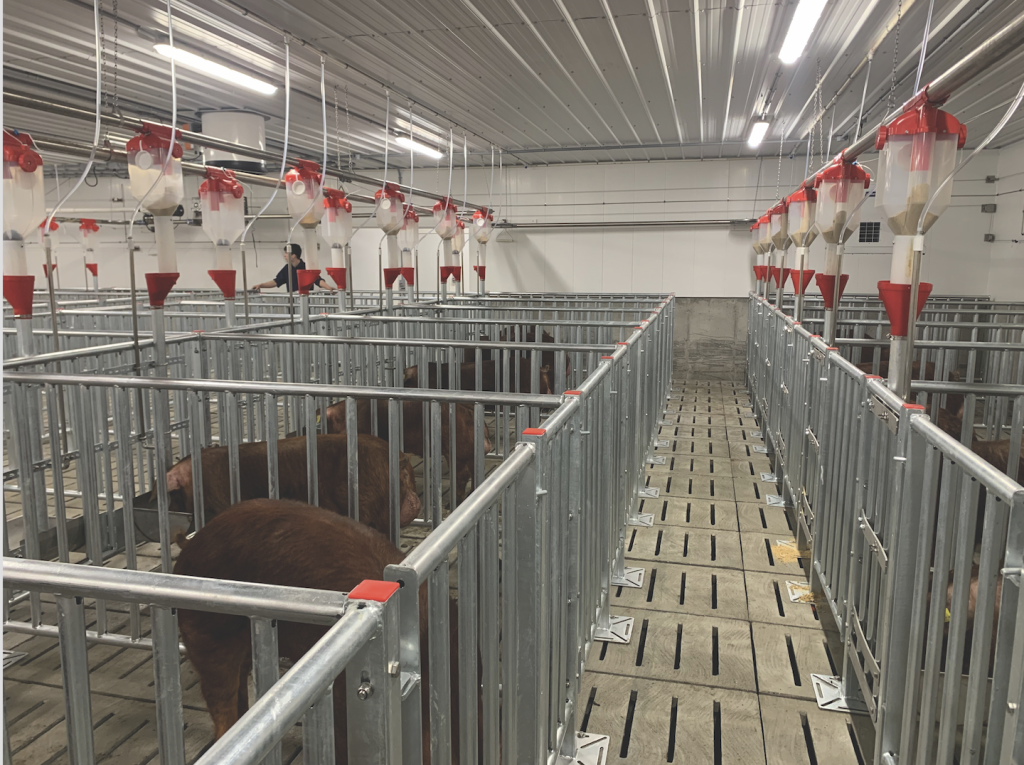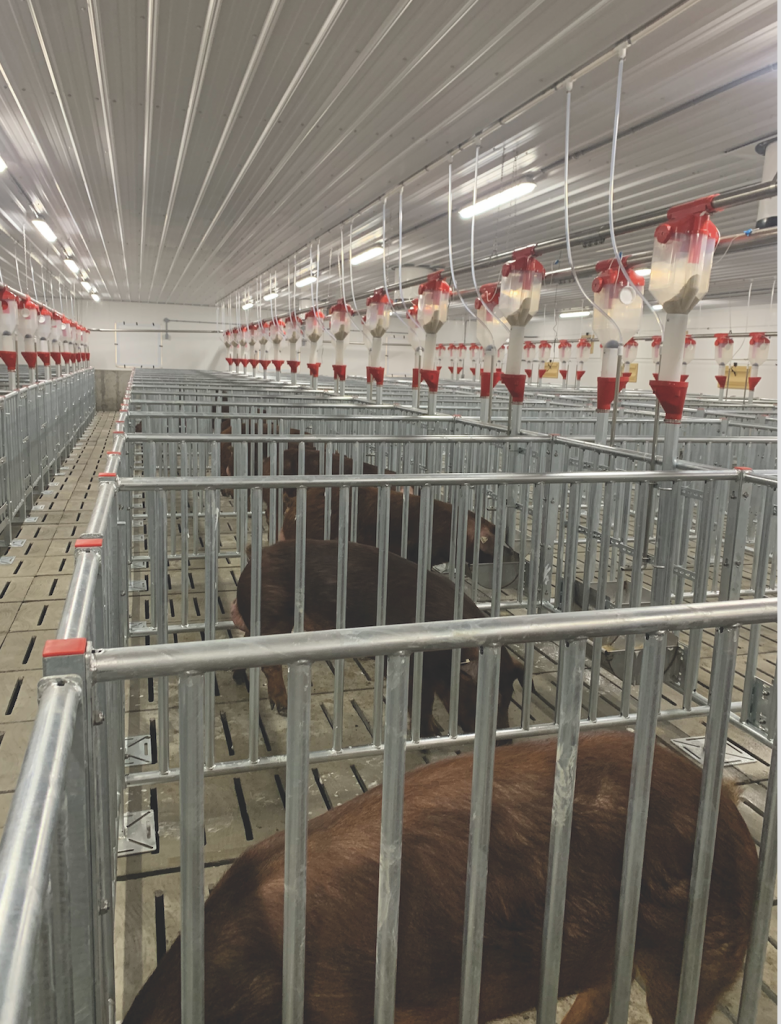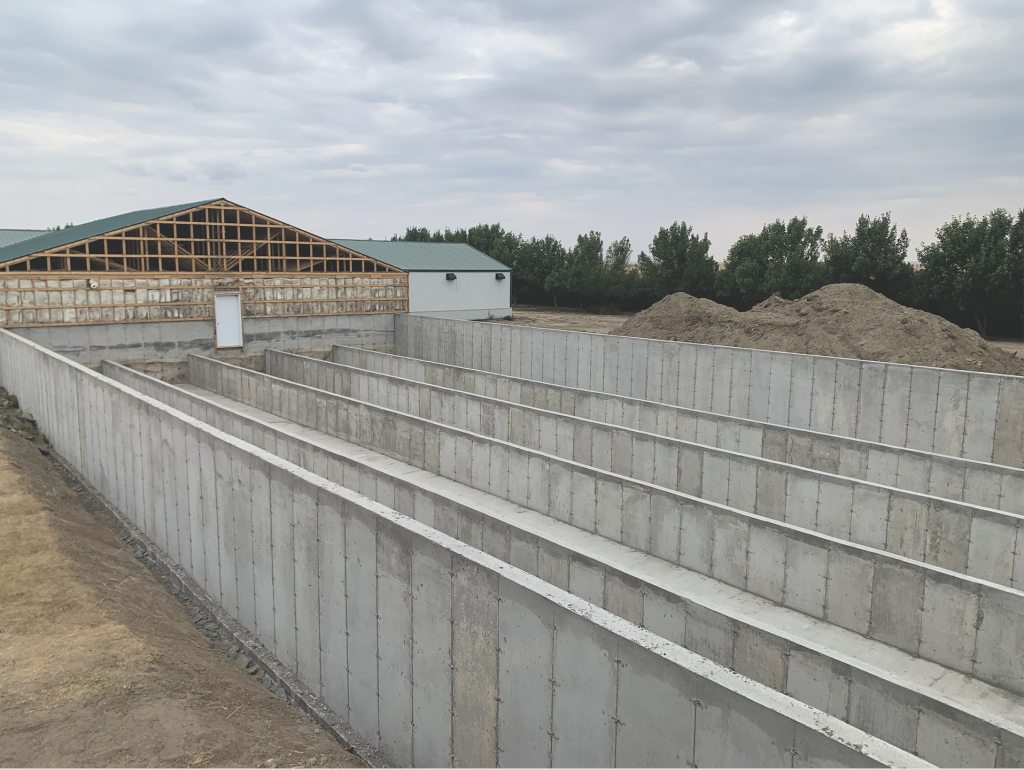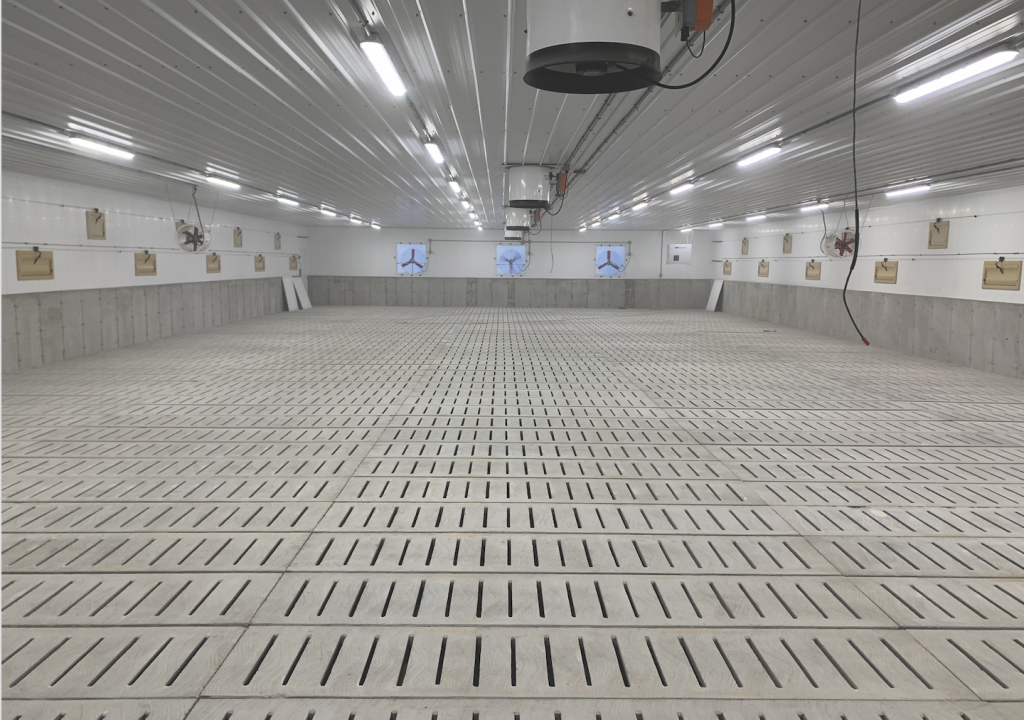

The final nail has been driven and the first of the new boys are getting cozy in the latest expansion at a boar stud east of Fort McLeod, Alberta.
Andrew Beusekom founded Magnum Swine Genetics in 1996, starting with 34 spaces for premium boars that would supply fresh semen for independent hog farms. The stud expanded by 30 spaces in the first six months and continued to grow over the ensuing years.
MSG’s latest expansion added 104 boar spaces to the stud, for a capacity of 300. This will be the final expansion at the site, which does not have room for any more growth, Beusekom said in an interview with Prairie Hog Country. He said he is not looking that far ahead, at least not right now. And he’s not in a rush to fill those new spaces.
“This is a significant expansion for us. It is all animal welfare friendly, so it’s all open penning, open concept design. The whole theory behind it is happy pigs are producing pigs.”
Started last August, construction had been delayed somewhat because of a worker shortage in Alberta, said Beusekom. The new space was finished early in March and ready to accept the first batch of young boars.
Just like selling cars, it’s important in the genetics business to have the newest models available for customers. For MSG, that means having the most up-to-date genetics from each line in the barn. The pig’s short life cycle means that old stock can be cycled out fairly quickly to make room for improved stock, said Beusekom.
Terminal sires, bred for commercial farms, are retained for 16 to 18 months. Maternal sires, used to breed new gilts, have a shorter stay, averaging 11 to 15 months, to take advantage of genetic improvements as the lines evolve.
Shipping costs for low-value animals and the bio-security risks involved in transport means it makes more sense to euthanize and bury aged-out boars on site once they have been replaced.
MSG manages boar stock for six different companies, whose mission is to tailor genetics that will meet the producers’ needs. Maintaining high-quality stock to provide producers with the best possible product means there is no room for error, especially in terms of bio-security, said Beusekom.


“We’re kind of at the top of the pyramid when it comes to bio-security and health. All the animals coming in are going through quarantine facilities, getting tested up and down for every disease out there.”
He related the story of an incident in which a shipment of new boars was late arriving and had encountered bio-security risks in transit. MSG was supposed to be the first stop on the truck’s run. Beusekom discovered that it had made other stops on the way to his stud, and he found additional breeches in the bio-security protocol.
It was a Friday night leading into a long weekend and, while he did not want to destroy a shipment of young animals, he could not risk allowing a disease or infection into his facility. Subsequently, he destroyed the entire shipment.
Beusekom said training and semen testing is performed once the new boars have cleared quarantine and are ready to get to work.
The real magic at MSG is in the collection, testing and packaging of semen along with the insemination products provided to producers and breeders.
Collection is performed on Tuesdays and Thursdays by a crew of 16 part-time staff hired for that purpose. A full-time staff of three look after daily business, including animal care and quality control.
A Computer Assisted Semen Analysis system helps lighten the load.
“You know, those kinds of things make the difference in the consistency and quality.
“It’s the complete package. You get good boars, you manage those boars well from a management standpoint, which includes the facility, right? And then you process well to make sure you’ve got a quality product.”
A reliable means of shipping fresh semen to producers in the Western provinces is essential, said Beusekom.
“You can be doing all the things right at the facility here, and then pass it off to a third-party courier and you know how couriers work, right? It’s just a package to them, and they say it’s a promise – until it doesn’t get there.”
Producers rely on shipments arriving in time and in good shape, he said.
He added, “we ship across the country, Massat BC to Labrador to Whitehorse by plane, and with temperature controlled delivery vehicles.”
“So there’s an awful lot of logistics involved in making sure that the good product that you’re working toward or that you’re producing is delivered to the right place at the right time.” •
— By Brenda Kossowan





